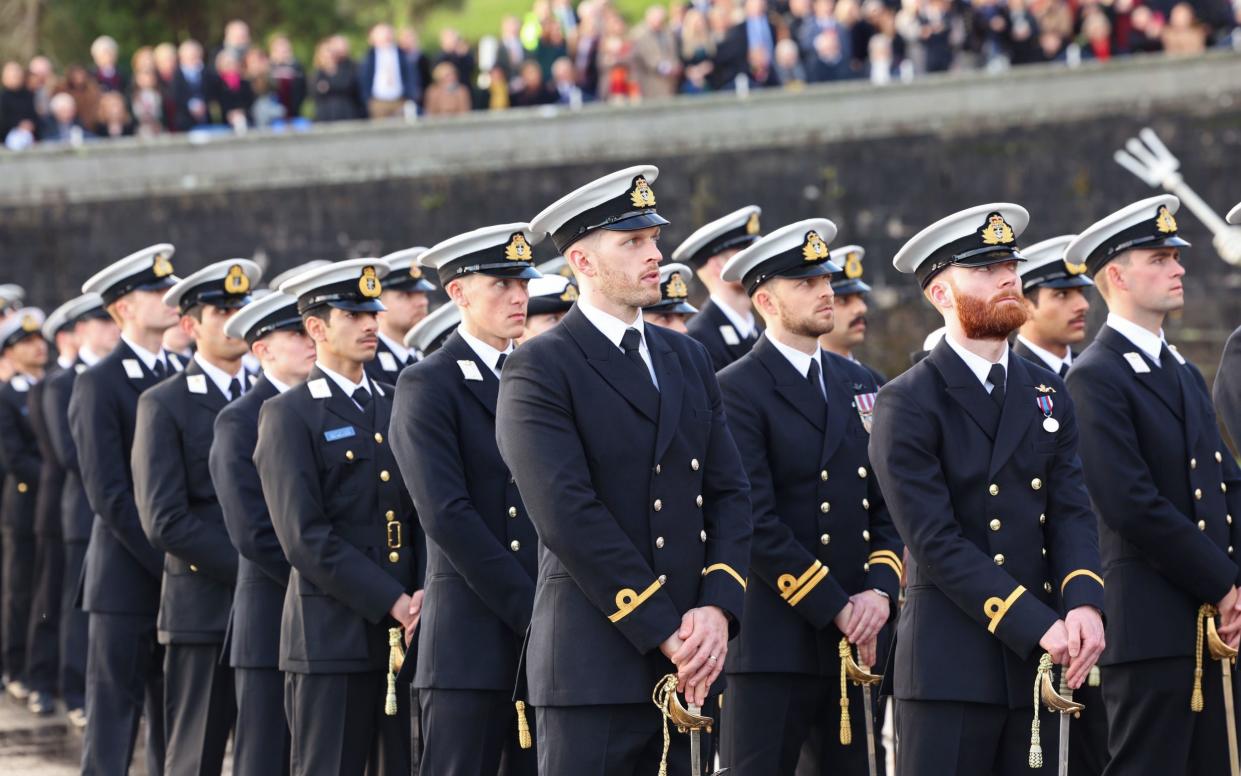The Navy is turning away people who are ready and willing to fight for Britain

As the world enters a new and dangerous phase, it seems as if Britain has been caught napping. Russia’s savage invasion of Ukraine continues apace, China sabre rattles over Taiwan, and Iran’s Houthi proxies ensure that Red Sea shipping succeeds only under the watchful eye of western warships.
The British government, apparently operating under a policy of “better late than never”, finally appears to have woken up. After decades of cuts, winnowing the armed forces down to a fraction of their former size, Rishi Sunak announced that defence spending will reach 2.5 per cent of GDP by 2030.
This was quickly followed by the news that Britain would produce its own hypersonic missiles by 2030, coming on top of existing plans to develop a “sixth generation” fighter jet of our own.
And yet, despite the increased investment and shiny new equipment in the pipeline, the question of who will operate it all remains a sticking point for the MOD. In the last decade, 800,000 applicants have withdrawn from the process.
The past year alone has seen 74,000 (roughly the entire current complement of the army) do likewise. My own experience of applying for the Royal Navy confirmed that, for the armed forces to rebuild, they’re going to have to do much better.
Last year, finding myself financially pinched and keen on adventure, I decided to have a go at joining the Senior Service. Naively, I presumed I would be a shoo-in. After all, I had been raised on a rich diet of naval yarns spun by my ex-RNR commander grandfather, shivered under canvas as an (admittedly sub-par) Royal Marine cadet, and spent many a morning furiously polishing shoes as a student at the Royal Hospital School, an anachronistic military school in Suffolk.
After an online search, I submitted a request for an application form for the role of Warfare Intelligence Officer. And then, nothing. No confirmation email, no application number, and no form. A week later, I tried again. Once more, nothing. Perhaps, I mused, there was some sort of backlog. I waited again, this time for 9 months. Nothing. I emailed the recruiting centre and finally received my form.
A week or so after submitting my application, I received a call from an employee of Capita, an outsourcing firm “delivering innovative, digitally enabled solutions to transform and simplify the connections between government and citizens” working on behalf of the MOD.
It was clear from the outset that they had not read my application, nor, judging from their tone, did they care. As they asked me a series of questions I had already answered on the form, I was vividly reminded of every interminable phone call I had ever made to a call centre; the same indistinct voice of disinterest nasally going through the motions of civility before informing me, without an iota of sincerity, that they were “sorry, but my application could not proceed”.
The role I had applied for “required A levels”, which I do not have.
I protested: I had taken a slightly circuitous route to higher education, but surely my first-class BA and MSc, both from Russell Group universities, trumped the 72 UCAS points officially needed? Alas not. The computer said A levels, and I didn’t have them, so the computer said no, and my 10 month-long application was at an end.
People apply to the armed forces for a variety of reasons, but all must do so with some idea that they are sacrificing something, be that pay, family, freedom, or personal safety. They are, in simple terms, offering to give something up to protect all of us in a rapidly worsening world.
As it stands, those offering that sacrifice are met with possibly the worst recruitment service in the country, filled with interminable waits, pointless forms, and the sort of bureaucratic inflexibility which would make even the most committed candidate question the point of continuing.
If Britain is to rebuild its armed forces, then money, kit, and renewed purpose will only take it so far. We cannot continue to discard 800,000 applicants a decade through an incompetent, inflexible, and insincere approach to recruiting.


